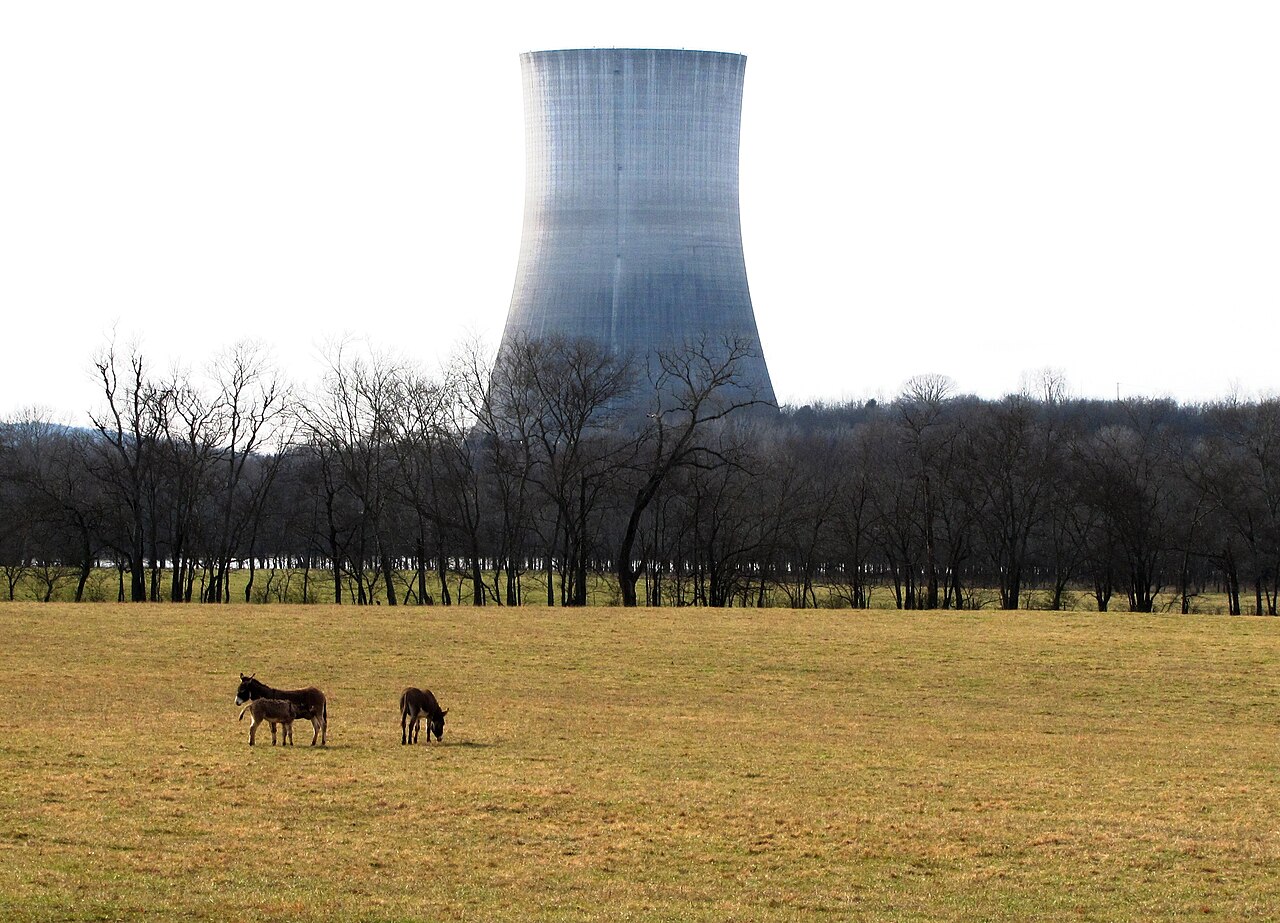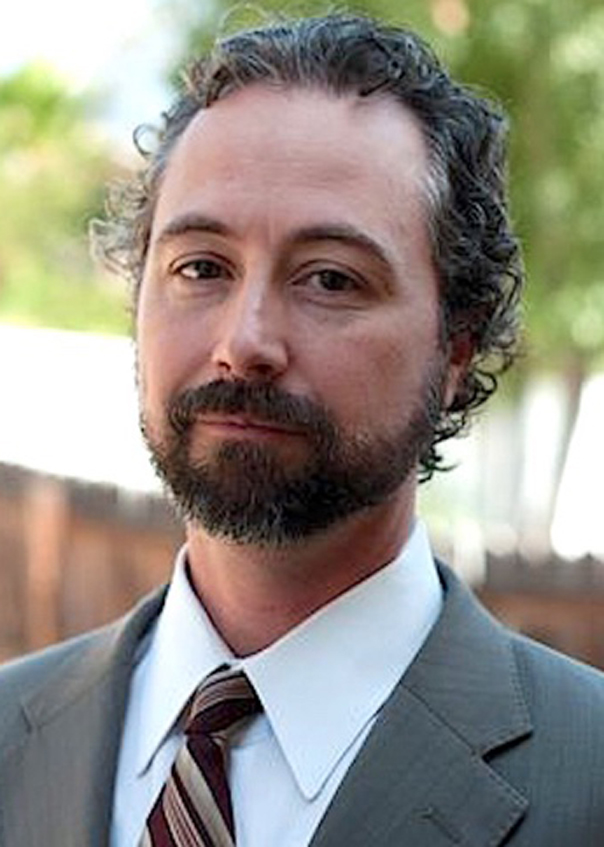Canceled nuclear plant site targeted by paragliders

Three people were arrested on January 3 when they paraglided onto the site of a canceled nuclear power plant in Hartsville, Tenn., according to Nashville news station WSMV.
The ANS Nuclear Cafe is a blog owned and edited by the American Nuclear Society. Information contained on the ANS Nuclear Cafe has been provided by numerous sources. Therefore, the American Nuclear Society assumes no responsibility or liability for the accuracy of information contained herein. DISCLAIMER: The views expressed in posted articles do not necessarily reflect the views of the American Nuclear Society. The views expressed here are those of the individual authors. ANS takes no ownership of their views. The American Nuclear Society assumes no responsibility or liability for any use or operation of any methods, products, instructions, or ideas contained on this site.

A message from Westinghouse Electric Company Parts Business
Westinghouse delivers advanced, plug-in-ready power supply solutions that eliminate obsolescence and keep nuclear plants running safely, reliably, and future-ready.

Three people were arrested on January 3 when they paraglided onto the site of a canceled nuclear power plant in Hartsville, Tenn., according to Nashville news station WSMV.
A coalition of energy and grid industry associations led by the National Electrical Manufacturers Association (NEMA) today requested $1.2 billion in repurposed supplemental funding in upcoming negotiations on the Senate Energy and Water Development Appropriations Bill for Distribution Transformer and Grid Components.
What happened at COP28, the annual United Nations climate event held this year in Dubai, was the greatest outpouring of global support for nuclear power the world has seen since the thunderous reception to Eisenhower’s Atoms for Peace call exactly 70 years ago. For the first time, nuclear energy was specifically mentioned in the closing statement of a COP event as one possible way to combat climate change.
 A new report from the Emirates Nuclear Energy Corporation (ENEC) and the Electric Power Research Institute (EPRI) describes the use of nuclear energy to decarbonize some activities normally powered by oil and gas.
A new report from the Emirates Nuclear Energy Corporation (ENEC) and the Electric Power Research Institute (EPRI) describes the use of nuclear energy to decarbonize some activities normally powered by oil and gas.
Decarbonization Strategies for Upstream Oil and Gas Operations with Advanced Nuclear Technologies, prepared by the Massachusetts Institute of Technology under contract to EPRI, was intended to “inform broader discussions around decarbonization [oil and gas] operations” at COP28, held in Dubai, United Arab Emirates, from November 30 to December 12.

Energy secretary Jennifer Granholm visited the Clinch River Nuclear Site in Oak Ridge, Tenn., on December 5 to highlight the Biden administration’s support for the Tennessee Valley Authority’s advanced nuclear technology program.
Granholm indicated that the administration is willing to provide funding for the nation’s first commercial small modular reactor at the site. “Excited to see a shovel in the ground, hopefully in a few more years,” she said. “TVA is leading on small modular reactors with this site. Everybody’s looking to TVA to make sure that this can actually happen.”

Fifty-two percent of Americans either “strongly” or “somewhat” support nuclear energy as part of the United States’ energy mix, with the strongest support among Republicans (59 percent) and self-described independents (53 percent). Support among Democrats is 48 percent. Those are some of the results from the sixth annual American Climate Perspectives Survey conducted by ecoAmerica.

World Nuclear Energy Day takes place tomorrow, marking the 81st anniversary of the day in 1942 when Enrico Fermi and his team achieved the first controlled, self-sustaining nuclear chain reaction with Chicago Pile-1. It also is the anniversary of the first commercial nuclear reactor reaching criticality—at Shippingport, Pa., on December 2, 1957.

The Nuclear Regulatory Commission’s Office of Nuclear Regulatory Research is hosting two workshops on reactor topics before the end of the year.
The National Nuclear Security Administration’s Office of Radiological Security (ORS), part of the Department of Energy, announced this week that it partnered with Jordan's Energy and Minerals Regulatory Commission (EMRC) to replace all of Jordan’s high-activity cesium-137 irradiators with X-ray technology.
A new NSTOR collection, "Reimagining Nuclear Futures: Emerging Voices on Technology, Policy, and Society," has been launched by Aditi Verma, assistant professor of nuclear engineering and radiological sciences at the University of Michigan. The collection features technology policy op-eds, essays, and papers from emerging scholars in nuclear engineering and adjacent fields.
The collection is open access with no publication charges through the end of 2024.
NSTOR—Nuclear Science and Technology Open Research—is offered through the American Nuclear Society.

So far this year, Savannah River Nuclear Solutions Supply Chain Management (SCM) apprenticeship program has transitioned 12 new graduates to its team. According to SRNS, the apprentices and interns were attracted to the training program through new recruiting connections that SRNS has established with universities and colleges in the Aiken, S.C., area. The SCM program, which is designed to transition participants into full-time positions at the Savannah River Site, has recently increased internal incentives.

Shvyd’ko
A major step toward the creation of the most precise atomic clock ever—with an accuracy of one second in 300 billion years—was recently reported in Nature by an international team of researchers working at the European X-Ray Free-Electron Laser (XFEL) facility. The researchers, led by senior physicist Yuri Shvyd’ko of Argonne National Laboratory, created a pulse generator based on the element scandium that demonstrated an extremely narrow resonance frequency capable of maintaining unprecedented time accuracy.
Atomic and nuclear clocks: In atomic clocks, the electrons in the atomic shells of certain elements—most commonly cesium—are raised to higher energy levels with microwave radiation. The microwave frequency is tuned to maximize the radiation absorption within a particular resonance range.

Ousmane Hisseine, an assistant professor of civil engineering at McMaster University in Hamilton, Ontario, is using his expertise in concrete infrastructure in hopes of improving the safety of small modular reactors.

Hall
Nuclear energy stocks “have become far more compelling to many investors in recent years,” and “there are good reasons to support this carbon-free source of energy,” according to investment entrepreneur and financial lecturer Jason Hall. In an article recently published by The Motley Fool, Hall discusses the opportunities and risks of investing in nuclear energy companies and offers his perspective on three top nuclear energy stocks.
Nuclear basics and new innovations: Hall started at the beginning, describing the most basic aspects of nuclear energy: the production of heat through fission, the generation of electricity via turbines, and the mining and enrichment of uranium for fuel. He noted that there “are only a small handful of companies with the expertise and financial strength to deal with nuclear reactors, and almost all are either private, state-owned, or the subsidiary operation of a large industrial conglomerate.”

Purdue University’s School of Nuclear Engineering is hosting a two-day Atoms for Humanity symposium on campus at the Stewart Center’s Eliza Fowler Hall on October 25–26. The symposium—which will take place from 10:00 a.m. to 6:00 p.m. (EDT) on the first day and from 10:00 a.m. to 5:00 p.m. (EDT) on the second day—will highlight the role of nuclear energy as a clean energy source. It is open to everyone, and no registration is required.
 The present size of the civil nuclear workforce in the United Kingdom is the largest it has been in the past 20 years. So reports the Nuclear Industry Association (NIA), the main trade association for the U.K. civil nuclear industry, in its recently released Jobs Map 2023. The London-based organization has released this report annually for more than a decade with the objective of giving the government the most up-to-date, accurate statistics on which to base economic and energy decisions. The NIA reports that the latest job growth has been fueled partly by projects on advanced and emerging nuclear technologies.
The present size of the civil nuclear workforce in the United Kingdom is the largest it has been in the past 20 years. So reports the Nuclear Industry Association (NIA), the main trade association for the U.K. civil nuclear industry, in its recently released Jobs Map 2023. The London-based organization has released this report annually for more than a decade with the objective of giving the government the most up-to-date, accurate statistics on which to base economic and energy decisions. The NIA reports that the latest job growth has been fueled partly by projects on advanced and emerging nuclear technologies.
 Allied Power has acquired Dominion Engineering, Inc. (DEI), Allied announced last week. Financial terms of the deal were not disclosed.
Allied Power has acquired Dominion Engineering, Inc. (DEI), Allied announced last week. Financial terms of the deal were not disclosed.
Allied provides a range of services—including routine maintenance, outage services and management, capital construction, and specialized support—for power plants in the United States.
DEI has provided field service equipment, technology, and consulting services for nuclear utilities and operators for more than four decades. Its services include work on refueling outages, decommissioning, and waste management activities.
The Baker School of Public Policy and Public Affairs at the University of Tennessee—Knoxville hosted a presentation titled “A Conversation of the Future of Nuclear Energy in the United States” on Tuesday, September 5. Panelists were ANS member Jamie Coble, associate professor of nuclear engineering at UTK and associate editor of the American Nuclear Society journal Nuclear Technology; ANS member Scott Hunnewell, vice president for new nuclear at the Tennessee Valley Authority; and ANS member Andrew Nelson, section head for nuclear fuel development at Oak Ridge National Laboratory. The discussion was moderated by Charles Sims, director of the Center for Energy, Transportation, and Environmental Policy at the Baker School.

Spent Fuel Solutions, which advocates for a permanent disposal solution for the nation’s spent nuclear fuel, will be holding an informational webinar on Friday, September 15, from 11:00 a.m. to noon (PDT).
 According to the World Nuclear Association’s newly released Nuclear Fuel Report: Global Scenarios for Demand and Supply Availability 2023–2040, there will be more of an increased demand than previously anticipated for nuclear fuel services and nuclear power capacity over the next several years. The report notes that the increased need for nuclear energy is associated with government efforts to decarbonize energy supplies and achieve energy security as well as growing interest in deploying new large nuclear reactors and small modular reactors (SMRs). The report is available to order now.
According to the World Nuclear Association’s newly released Nuclear Fuel Report: Global Scenarios for Demand and Supply Availability 2023–2040, there will be more of an increased demand than previously anticipated for nuclear fuel services and nuclear power capacity over the next several years. The report notes that the increased need for nuclear energy is associated with government efforts to decarbonize energy supplies and achieve energy security as well as growing interest in deploying new large nuclear reactors and small modular reactors (SMRs). The report is available to order now.